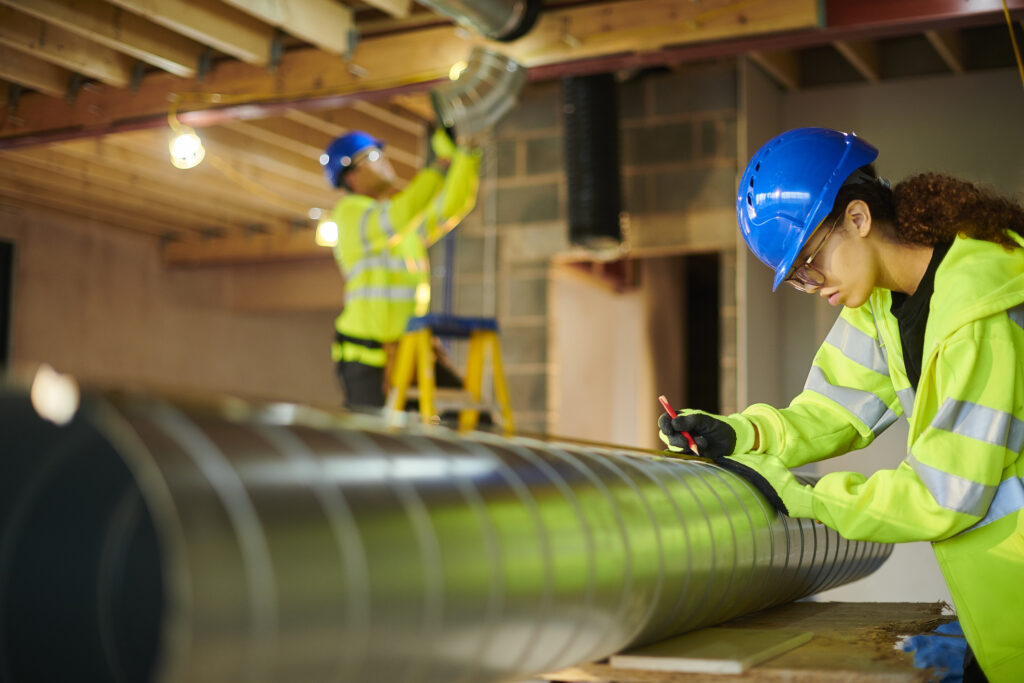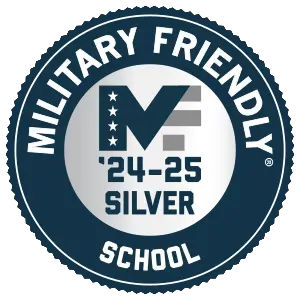HVAC Certification Levels: What They Mean and How to Achieve Them

Did you know that there are different levels of HVAC certification? Each one illustrates how skilled and experienced you are as an HVAC technician. From apprentice to journeyman to master technician, each step brings more responsibility. Each level requires completing educational programs, completing hands-on training, passing exams, and meeting state or federal licensing rules. Understanding what each level means can help you plan your career in HVAC the right way.
HVAC Certification Levels
There are three certification levels in HVAC. They are apprentice, journeyman and master technician. Here is a breakdown of each HVAC certification level:
Apprentice
Apprentice is the first HVAC certification level. Here is a review of some of the duties an apprentice is responsible for:
Learning the Basics of HVAC
An HVAC apprentice learns how to install, maintain, and repair heating, cooling, and ventilation systems. They work under the strict supervision of a licensed technician while picking up hands-on experience. This includes using tools, completing repairs, reading blueprints, and understanding safety codes. Apprentices often assist before they complete tasks independently as a journeyman.
Helping With Installations
Apprentices help with tasks that include measuring and cutting ductwork, run refrigerant lines, and place air handlers or furnaces. They also work with thermostats and zone controls. During these tasks, their job is to support the lead technician and learn each step. For example, on a new home build, you may install duct systems while the lead technician wires the thermostat and charges the system.
Assisting With Repairs
When HVAC systems break down, apprentices help find and fix problems. This might include checking for leaks, cleaning coils, or swapping out worn parts. They also learn how to safely work around refrigerants and electrical components. For example, if a home’s A/C isn’t cooling, your role may be to help test the compressor or replace a blown capacitor.
Performing Routine Maintenance
Apprentices also help with regular maintenance jobs. This includes changing air filters, testing thermostats, cleaning ventilation systems, and replacing components like fans and coils. For example, during a spring tune-up, you might inspect the blower motor and clean the condenser coils.
Tracking Job Details
The apprentice learns how to record notes and complete service forms. This part of the job teaches them how to accurately record work logs, read customer orders, and track inventory. Accurate recordkeeping is essential in HVAC work.
Using Tools and Equipment
HVAC apprentices become familiar with many tools. This includes gauges, wrenches, pipe cutters, and multimeters. During hands-on training at OBC, you will learn when and how to use each tool safely and correctly.
Following Safety Rules
Apprentices are trained in safety guidelines for electrical work, ladder use, refrigerant handling, and confined spaces. They often need to wear protective gear and follow OSHA standards.
Journeyman HVAC Technician
The next HVAC certification level is Journeyman. Here is a review of some of the duties a journeyman is responsible for:
Installing HVAC Systems
Journeyman HVAC technicians install heating, cooling, and ventilation systems in homes, offices, and industrial buildings. They read blueprints, lay out ductwork, and connect gas lines or electrical wiring. Unlike apprentices, journeymen work independently or lead small crews. For example, a journeyman might manage the full installation of a rooftop HVAC unit for a retail store.
Diagnosing and Repairing Issues
Journeymen troubleshoot HVAC problems and make repairs. They check for faulty wiring, refrigerant leaks, broken thermostats, or bad motors. Using tools like multimeters and pressure gauges, they identify issues and fix them without needing supervision. For example, if a commercial freezer is losing temperature, a journeyman can run diagnostics, replace the compressor, and verify performance.
Performing Preventive Maintenance
Journeymen handle routine service checks to keep systems running smoothly. This includes cleaning coils, tightening connections, checking fluid levels, and adjusting controls. They also educate clients on how to care for their systems. For example, in a scheduled fall maintenance call, a journeyman HVAC technician might tune up a furnace and check the heat exchanger for cracks.
Working With Customers
Journeymen often speak directly with homeowners or business owners. They explain what’s wrong, how to fix it, and what it will cost. Good communication is key, especially when making service recommendations or offering system upgrades.
Leading and Mentoring
Journeyman HVAC techs guide apprentices. They show them how to perform tasks safely and correctly. In some jobs, the journeyman may supervise several workers on a project. For example, on a job to upgrade a school’s HVAC system, the journeyman technician might lead a crew of three apprentices while reporting progress to a foreman.
Following Safety and Code Requirements
Journeymen follow state and local codes for electrical work, gas line connections, ventilation clearances, and refrigerant handling. They also know how to stay safe in confined spaces and while working at heights.
Using Advanced Tools and Tech
Modern HVAC systems involve smart thermostats, variable-speed motors, and energy management systems. Journeymen know how to install and troubleshoot this technology. They also use digital tools to track repairs and record data.
Master HVAC Technician
Master is the highest HVAC certification level. Here is a review of some of the duties a master HVAC technician is responsible for:
Running Complex Projects
A master HVAC technician plans and oversees large-scale jobs. This can include commercial system upgrades, new construction installations, or energy-efficiency retrofits. They handle system design, site selection, budgeting, and scheduling. On many sites, they act as the project lead or foreman. For example, a master HVAC tech may manage the full mechanical system for a new apartment complex, from ductwork layout to system testing.
Supervising Technicians and Apprentices
Master HVAC techs are often in charge of journeymen and apprentices. They assign tasks, check completed work, and train team members on advanced systems. Their job includes mentoring others and making sure the work meets building codes and safety standards. For example, a master tech might guide a crew during a hospital HVAC installation, checking pressure levels and ensuring code compliance.
Handling Advanced Diagnostics
When others can’t find the problem, a master technician steps in. They use advanced tools to run system tests, evaluate performance, and solve complex issues. Their experience helps them identify problems others may miss. For example, if a commercial HVAC system has fluctuating air pressure and noise, the master tech might pinpoint a hidden airflow restriction or misaligned ductwork.
Obtaining Permits and Approvals
Master HVAC technicians are licensed to pull permits for installation or repair jobs. They work with inspectors to get final approval and make sure the work meets state and local codes.
Specializing in System Design
Many master HVAC techs work closely with engineers and architects. They help design HVAC systems that match the needs of the building. This includes choosing equipment sizes, duct placement, airflow rates, and energy efficiency ratings. For example, a master HVAC tech may recommend a high-efficiency heat pump system for a school building based on square footage and climate needs.
Running or Owning a Business
Some master HVAC techs own their own companies. They bid on contracts, manage payroll, market services, and deal with customers. Even those who don’t own a business often have leadership roles in their company.
Staying Up to Date
Master technicians must stay up to date with HVAC codes, emerging technologies, and certification requirements. Many take continuing education courses to maintain their license. They may also hold certifications like NATE, EPA Section 608, or state mechanical licenses.
Want to Learn More?
Now that you know we will help prepare you for residential and commercial HVAC, it is time to learn more about Ohio Business College. If you have a passion for heating and cooling, working in the HVAC/R industry might just be for you. Entering a career in a field as potentially rewarding as HVAC/R all starts with an HVAC/R training program. At Ohio Business College, we can help you gain the skills and knowledge that can serve as the foundation of a rewarding career as an HVAC/R technician.
Contact us today to learn more about our HVAC/R program.

